Sustainable Batteries - The building blocks of a circular economy
ITU and the Secretariat of the Basel Convention
Session 494
Batteries are crucial for the functioning of ICTs and for a smart management of energy. Improving their design, prolonging their lifespan, improving their recyclability and preventing the dumping of waste batteries can lower their overall energy consumption, reduce exposure of humans and the environment to hazardous substances, as well as reduce global greenhouse gas emissions.
This workshop will discuss:
- how the sustainable management of batteries is vital for the transition toward a digital and circular economy;
- how international standards such as ITU-T L.1035 “Sustainable management of batteries”, support circular economy efforts, specifically in the case of batteries and their design, manufacturing, recycling and disposal, as well as data transparency and accountability.
- how to select a battery for the ICT infrastructure as described in ITU standard ITU-T L.1220 “Innovative energy storage technology for stationary use - Part 1: Overview of energy storage”, which describes the main characteristic to be considered and how to test a battery.
Learn from key experts in the field and explore how sustainable batteries play a critical building block for a circular economy.
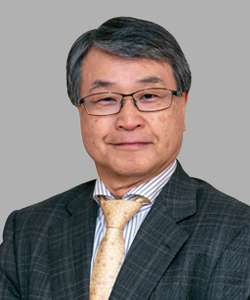
Seizo Onoe took office as Director of the Telecommunication Standardization Bureau (TSB) at the International Telecommunication Union (ITU) on 1 January 2023. Known in the industry as “the father of LTE” (Long-Term Evolution mobile broadband), he now aims for global outreach to bridge standardization gaps, deliver the benefits of technology widely and speedily, and ensure meaningful and affordable broadband access for everyone. Before his election as TSB Director by ITU Member States, he completed an over 30-year career with Japanese mobile operator NTT DOCOMO. In 2021, he became Executive Vice President and Chief Standardization Strategy Officer for NTT Corporation and a Fellow of NTT DOCOMO. From 2017, he served as NTT DOCOMO’s Chief Technology Architect and President of its subsidiary DOCOMO Technology. From 2012 to 2017, he served as NTT DOCOMO’s Chief Technology Officer and Executive Vice President, a Member of the Board of Directors, and Managing Director of R&D Innovation Division. Earlier, he served as Senior Vice President and Managing Director of NTT DOCOMO’s R&D Strategy Department and Managing Director of the company’s Radio Network Development Department. Mr Onoe holds a Master’s degree in electronics from the Kyoto University Graduate School of Engineering.
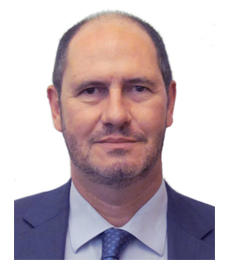
Carlos Martin-Novella is the Deputy Executive Secretary of the Basel, Rotterdam and Stockholm Conventions since January 1, 2017. He has a Bachelor of Biological Sciences (Master) from the Complutense University of Madrid (Spain). Carlos has more than 35 years of professional experience in the area of environment and sustainable development, both nationally and internationally, as well as in relation to negotiations and multilateral processes. Throughout his professional career, Carlos has also served as Deputy Secretary of the Intergovernmental Panel on Climate Change (IPCC), Special Advisor on Multilateral Environmental Agreements of the United Nations Environment Program, Senior Advisor to the German Government, Senior Advisor of the Spanish Government and Principal Administrator in the European Commission. Early in his career, Carlos conducted scientific field research on the ecology of Mediterranean ecosystems and led national, European and global initiatives for the conservation and sustainable use of biodiversity.
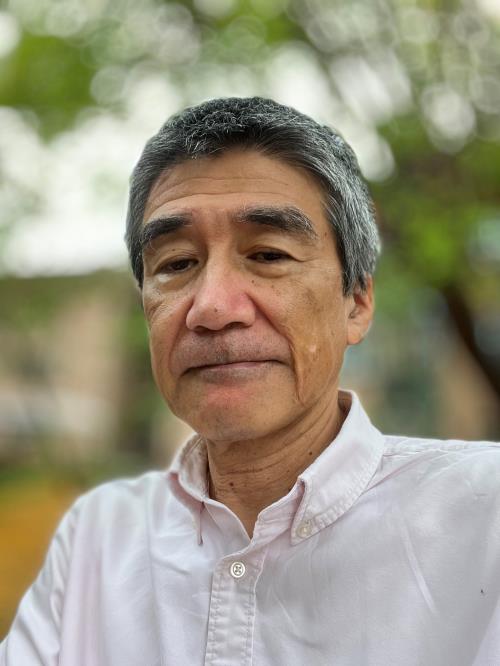
Takehiro Nakamura has been with UN Environment since 1992. He is currently Head of the UNEP International Environmental Technology Centre, which is UNEP’s global centre on environmentally sound waste management. His expertise covers sustainable management and use of coastal and marine resources and ecosystem services, transboundary river/lake basin management, sustainable development and management of groundwater systems, land-based sources of pollution and environmentally sound solid waste and wastewater management. He was engaged in the development and oversight of the projects funded by the Global Environment Facility (GEF) and other multilateral financing in the areas of international wasters and chemicals and waste.
All these activities and projects have been designed based on the ecosystem approach and aim at nature-based solutions. He has started a process of incorporating the ecosystem approach in the Regional Seas programme (coordinated by UNEP). He has been engaged, among others, in the assessment of land-based sources of marine and freshwater pollution and introduction of environmentally sound technologies and nature-based solutions to address sources of the pollution.
He has Bachelor and Master of Engineering degrees from Kyoto University (1985 and 1987 respectively). In 1991 he gained a Master of Science from the University of California, Berkeley, and in 2007 a Ph.D. in Global Environmental Studies from Kyoto University, with a thesis on the ecosystem approach to river basin management.
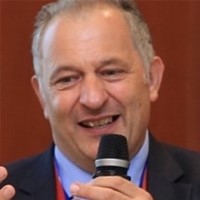
Paolo Gemma is a senior specialist and representative of Huawei on issues related to energy saving and environmental sustainability.
Prior to joining Huawei, Dr. Gemma was working with Nokia Siemens Networks, where he was responsible for EMC (electromagnetic compatibility) and electrical safety areas. He also worked in the Siemens Communications Division. Dr. Paolo Gemma also plays an active role in international standardization activities. Since 1993, he has been engaged in ETSI (European Telecommunication Standard Institute) activities and he also participates in the development of EMC standards. In 1997, Dr. Gemma joined ITU-T Study Group 5 on Environment, Climate Change, and Circular Economy as a Rapporteur and he is now the Chairman of Working Party 2 “Environment, Energy Efficiency and the Circular Economy”. He also acts as Vice-chairmen of the United for Smart Sustainable Cities (U4SSC) initiative. In 2002, Paolo Gemma was appointed as the Secretary of the Committee ETSI TC EE and as of 2009, he holds the position of Chairman of the EEPS EE (eco Environmental product standard) working group. Paolo Gemma is a graduate of electrical engineering from the University of Genoa.
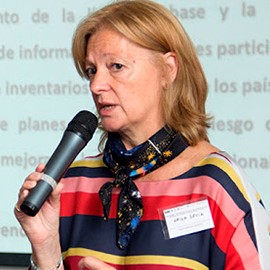
Lawyer, specialist in the legal regime of natural resources from the UBA, doctor in legal sciences from the Universidad del Salvador; she has done postdoctoral studies at the UBA. Currently, she is an undergraduate and graduate professor of Environmental Law at the UBA, at the Universities of Belgrano, UADE, USAL, UNSAM, ITBA, UCEMA; professor of the Doctorate of the UBA and the USAL; Associate Professor at the University of Belgrano; Visiting Professor at the University of Toulouse and Paris X University. She completed postgraduate studies in the United States, Japan and the Netherlands; and Head of the Legal Regime of Natural Resources of the Franco Argentina career of the University of Salvador. She is also the Director of the Regional Center for Training and Technology Transfer dependent on the BASEL Agreement and coordinator of Environmental Regulations of the National Institute of Industrial Technology. She is the author of numerous publications including: Climate Change (an Argentine look in relation to international trade and forest management), co-author of The paper mills in question and coordinator of the book MERCOSUR and the Environment. She is also an expert reviewer for the United Nations Intergovernmental Panel on Climate Change.
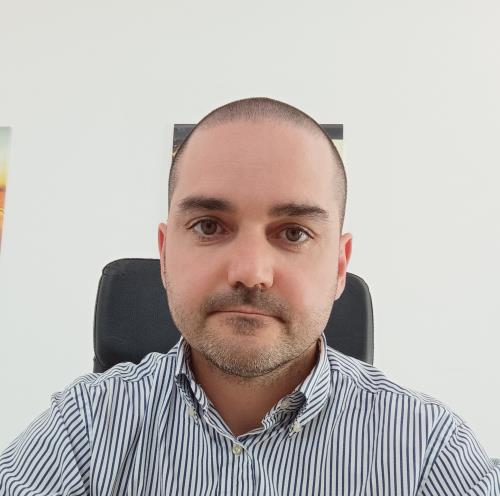
Dr. Matteo Cavalletti (M) holds Master degree in Electronics and Automation Engineer in 2005 and he got a PhD in Automation Engineer in 2008. With almost 20 years of experience in the battery field, he joined MIDAC 8 years ago and he is actually the funded projects manager for MIDAC, including IPCEI Project.
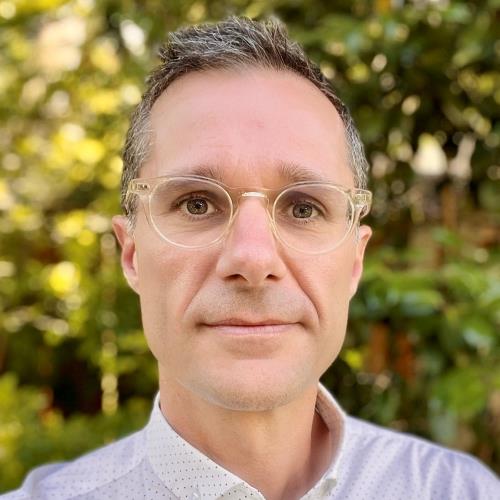
Drew McCartor is the Executive Director of the international non-profit organization Pure Earth. Drew is a lawyer and environmental health professional with 13 years of experience designing and implementing programs to reduce lead pollution and exposure in low- and middle-income countries. Pure Earth has worked extensively to reduce risks from substandard lead acid battery recycling in low-resource settings.
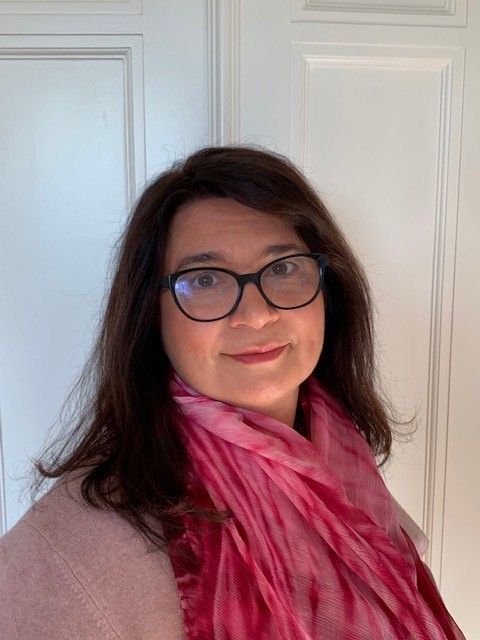
Ms. Cenni is a programme management officer in the Science and Technical Assistance Branch of the Basel, Rotterdam and Stockholm Conventions Secretariat. She the focal point for the Basel Convention technical assistance plan, and she coordinates the Partnership for Action on Challenges relating to E-waste (PACE II), is responsible for technical assistance activities on prevention and response to emergencies, on ESM of waste-lead acid batteries, ESM of e-waste and mercury wastes. She also serves as focal point for BRS technical assistance activities in Latin America and the Caribbean. Ms. Cenni is one of the authors of the E-waste Challenge MOOC and in the past she coordinated the Probo Koala assistance programme in Africa, the E-waste Africa programme and the Waste Mercury and Lead programmes of the Basel Convention, facilitating projects in cooperation with Basel Regional Centres. Ms. Cenni, an Italian national, holds a Master’s degree in environmental sciences from Bologna University, in Italy, and worked as a researcher at Lund University, in Sweden, where she specialized in marine toxicology.
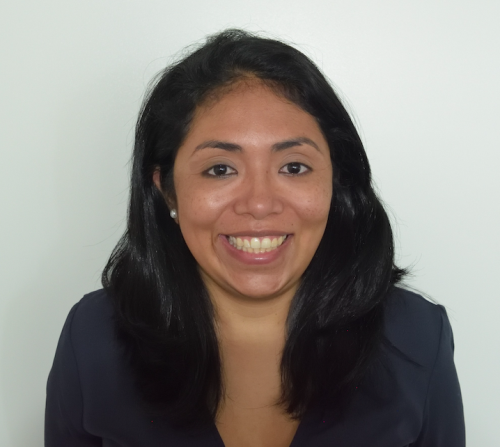
Reyna Úbeda studied Industrial Engineering and she completed a Master on International Management from the University for Economics and Environment Nürtingen- Geislingen in 2014.
She joined the ITU’s Standardization Bureau in 2015. She is the Advisor of ITU-T Study Group 5 on Environment, Climate Change and Circular Economy. Reyna speaks English, Spanish and German.
-
 C2. Information and communication infrastructure
C2. Information and communication infrastructure
-
 C6. Enabling environment
C6. Enabling environment
-
 C7. ICT applications: benefits in all aspects of life — E-environment
C7. ICT applications: benefits in all aspects of life — E-environment
-
 Goal 7: Ensure access to affordable, reliable, sustainable and modern energy for all
Goal 7: Ensure access to affordable, reliable, sustainable and modern energy for all
-
 Goal 9: Build resilient infrastructure, promote sustainable industrialization and foster innovation
Goal 9: Build resilient infrastructure, promote sustainable industrialization and foster innovation
-
 Goal 12: Ensure sustainable consumption and production patterns
Goal 12: Ensure sustainable consumption and production patterns